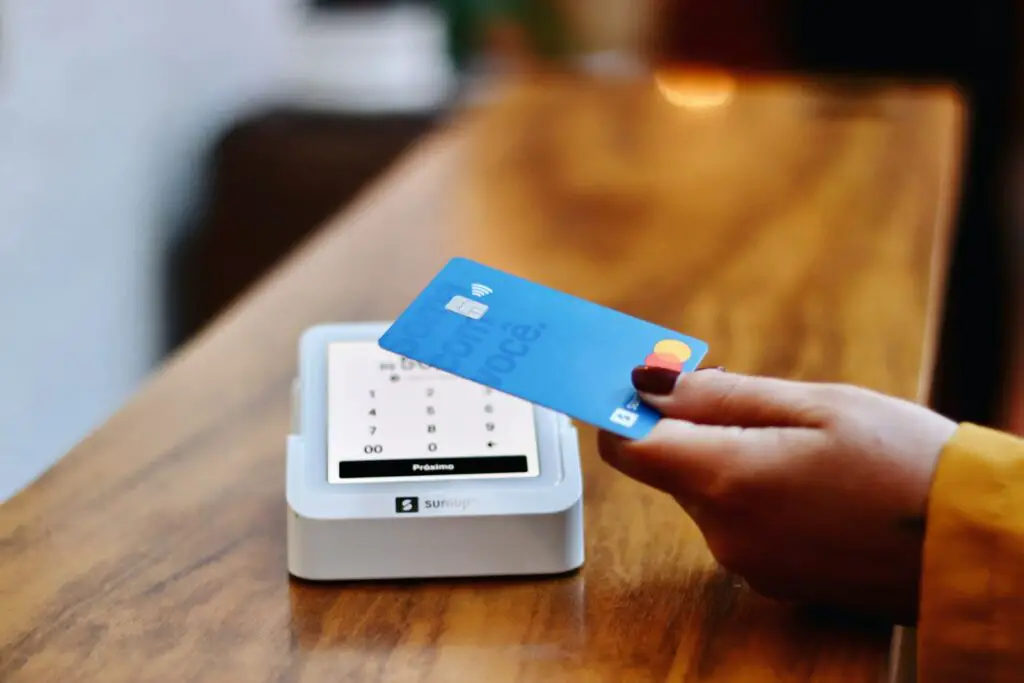In the ever-evolving gig economy, maintaining financial savvy is akin to a high-wire act. The plastic in your wallet might be a powerful tool or your downfall. Gig workers, unfettered by traditional paycheck constraints, must navigate a financial landscape replete with variable income and unpredictable expenses.
Understanding the alchemy of credit scores and their impact on one’s financial health is foundational knowledge for any independent professional. It is this arcane system that can open doors to opportunities or clamp them shut with iron finality. Whether a seasoned freelancer or a novice Uber driver, the implications of credit history are monumental, painting a picture of risk and reliability.
Embark on a journey through the fiscal intricacies of the gig-sphere, where savvy credit card use becomes your ticket to stability and success. This article promises a map to set financial goals, manage debt, and maximize opportunities, providing the knowledge to wield credit as a strategic ally rather than a burden—ultimately crafting a safety net that allows financial freedom to flourish for the modern gig worker.
How to Use Credit Cards Wisely: Effective Management of Debt
In the financial realm, credit scores and credit history are the cornerstones of any gig worker’s monetary reputation. Your credit score, a numerical representation ranging from 300 to 850, gauges your creditworthiness based on your historical financial behavior. A higher score opens doors to better interest rates and credit card offers.
Your credit history is a comprehensive record of past financial transactions, including credit card payments, loans, and any defaults. It also reveals the consistency of your monthly payments. This history forms the basis of your credit score—lenders scrutinize it to discern your reliability as a borrower.
Credit Score Impact Factors:
| Factor | Influence on Credit Score |
|---|---|
| Payment History | High |
| Total Debt and Credits | Medium |
| Length of Credit History | Low to Medium |
| New Credit | Low |
| Types of Credit Used | Low |
Whether it’s a small credit card debt or the use of multiple bank accounts, each aspect of your credit history can markedly influence your credit score. As a gig worker, maintaining a robust credit profile is critical for future financial goals and the ability to make informed decisions throughout the unpredictable nature of gig work.

Setting Financial Goals
For gig workers who operate in the increasingly dynamic gig economy, setting financial goals is crucial. The unpredictable nature of gig work means income can ebb and flow, making financial planning a necessary strategy for stability and growth.
Short-Term Financial Goals:
- Build an Emergency Fund: Target saving at least three to six months’ worth of expenses. Automated transfers into a savings account can streamline this process.
- Pay Down Credit Card Debt: Aim to keep credit card balances low to avoid high interest charges and to improve your credit score.
- Plan for Tax Payments: As a gig worker, setting aside money for income tax helps avoid surprises come tax season.
Long-Term Financial Goals:
- Retirement Savings: Invest in a retirement plan suitable for gig workers to ensure financial security in later years.
- Health Insurance: Secure a health insurance plan to protect against unforeseen medical costs.
- Investment in Personal Growth: Allocate funds to courses or certifications that can improve your skills and marketability.
Creating a Budget Based on Monthly Income and Variable Expenses
Crafting a budget as a gig worker involves a clear understanding of your variable income and expenses. To use credit cards wisely, a solid budget is necessary.
| Income Category | Suggestion |
|---|---|
| Fixed Income | Allocate to essential bills and savings |
| Variable Income | Use for discretionary spending or extras |
For expenses, separate them into fixed (rent, health insurance) and variable (entertainment, dining out). Here’s how to manage:
Fixed Expenses:
- Prioritize these in your budget. Ensure they’re covered first.
Variable Expenses:
- Adjust these month to month based on your gig earnings.
- Cut back on these if your income dips significantly.
Budgeting Tips:
- Use bank accounts and financial tools that help gig workers track spending habits.
- Adjust your budget as your income changes each month.
- Consult a financial planner if you need tailored advice.
By combining strategic financial goal setting with an adaptable budget, gig workers can maximize their earning potential, minimize credit card debt, and ensure that they are making informed financial decisions that support both their short-term needs and long-term aspirations.
Managing Credit Card Debt
As a gig worker, staying on top of your credit card debt is integral to maintaining financial flexibility. Balancing the use of credit against the variable income characteristic of the gig economy can challenge even the most prudent of spenders.
| Strategy | Action Step |
|---|---|
| Understand Your Debt | Gather all credit card statements to get a complete picture. |
| Prioritize by Interest Rate | Aim to pay off cards with the highest rates first. |
| Set Up Payment Reminders | Never miss a payment to avoid late fees and credit score hits. |
| Negotiate Lower Rates | Contact card issuers to request a lowered interest rate. |
| Consider Debt Consolidation | Combine multiple debts into one payment for ease and possibly lower rates. |
| Monitor Spending Habits | Restrict new credit card spending while paying off debt. |
| Create a Debt Payoff Plan | Dedicate a fixed monthly percentage of your income to debt repayment. |
Strategies for Paying Off Credit Card Balances
With careful planning and disciplined spending, paying off credit card balances becomes a manageable task:
- The Avalanche Method:
- Target the card with the highest interest rate for the largest payments while maintaining minimum on others.
- The Snowball Method:
- Start by paying off the smallest debts first for psychological wins that encourage you to continue.
- Balance Transfer Cards:
- Transfer card balances to a 0% introductory APR credit card to save on interest, if you qualify.
- Freelancer Tip:
- When you have a particularly lucrative month, allocate a portion of the excess to your credit card balance.
- Use Windfalls Wisely:
- Apply any unexpected earnings like tax refunds towards paying down your balance.
Utilizing Credit Card Payments to Improve Credit Score
For gig workers, a healthy credit score is like a professional credential. Implement these actionable tips:
- Maintain Low Utilization:
- Aim to keep credit utilization under 30% of your total credit limit.
- Pay On Time, Every Time:
- Establish a perfect payment record; timely payments are a major factor in credit scoring.
- Increase Payment Frequency:
- Make bi-weekly payments to reduce balances faster and decrease utilization.
- Monitor Your Credit Report:
- Regularly check your report for errors that might affect your score negatively and dispute any inaccuracies immediately.
By mastering these strategies for managing credit card debt, paying off balances, and enhancing your credit score, you’ll be well-equipped to navigate the financial complexities of the gig economy. Remember, mastering how to use a credit card wisely is more about consistent effort than it is about any one-time financial fix.
Maximizing Financial Opportunities
As a gig worker, the need to juggle multiple roles often extends beyond your primary professional responsibilities to include managing your own finances. Navigating this aspect of business ownership involves strategic thinking and informed financial decisions that can significantly affect your long-term goals. Here are some practical steps to ensure you’re getting the most out of your finances:
| Tips for Maximizing Financial Opportunities | Description |
|---|---|
| Diversify Income Streams | Explore various gigs to have more than one source of income. |
| Invest in Professional Development | Up-skill with courses that increase your marketability. |
| Leverage Technological Tools | Use apps and software for better job tracking and budget management. |
| Stay Informed on Market Rates | Regularly research so you’re not undercharging clients. |
| Network Extensively | Connect with other professionals for more work opportunities. |
| Review Expenses Regularly | Check and cut unnecessary expenditures to keep profits high. |
| Set Clear Financial Goals | Define short-term and long-term financial objectives. |
Implementing these strategies not only aids in optimizing monthly income and mitigating the uncertainty that comes with varying monthly payments but also positions you as a savvy business owner within the gig economy. Remember, every financial decision, whether it involves opening new bank accounts or using credit cards, should align with your overarching financial goal.
Taking Advantage of Tax Benefits as a Gig Worker
As gig workers operate like a business owner, understanding and taking full advantage of available tax benefits can result in substantial savings. Here’s how you can approach taxes to enhance your financial health:
- Deduct Business Expenses:
- Deduct legitimate business expenses including home office costs, travel, and health insurance premiums.
- Understand Your Tax Bracket:
- Knowing your tax bracket can guide planning and help you anticipate your income tax obligations.
- Save For and Pay Quarterly Taxes:
- Avoid penalties by estimating income and making quarterly tax payments.
- Keep Accurate Records:
- Maintain meticulous records of all income, expenses, and receipts.
- Consider a Retirement Plan:
- Invest in a retirement plan that offers tax advantages, like a Solo 401(k) or SEP IRA.
- Consult with a Financial Planner or Accountant:
- Professional advice can optimize tax benefits and help navigate complex tax situations unique to gig work.
Utilizing Savings Goals and Automatic Transfers for Financial Stability
Setting savings goals and leveraging automatic transfers can create a strong financial buffer and ensure you’re prepared for both opportunities and emergencies. Implement these actions to stabilize your financial situation:
| Goal Type | Strategy | Action |
|---|---|---|
| Emergency Fund | Short-term | Automatically transfer a portion of earnings to a dedicated emergency fund account. |
| Savings Milestones | Mid-term | Map out savings milestones and timelines, then use automatic transfers to reach them systematically. |
| Investment | Long-term | Invest a percentage of income into diversified investments aimed at growing net worth. |
Develop the habit of reviewing and adjusting these goals as your financial circumstances or the nature of gig work evolve. In addition, consider creating separate bank accounts for straightforward monitoring and allocation of funds to meet various savings goals. Coupled with diligent spending habits, these strategies can provide the financial resilience needed to thrive as a gig worker.

Protecting Your Financial Future
Protecting your financial future requires careful planning and prudent financial management, especially for gig workers who face fluctuating income streams. Here are strategic steps you can take:
Establishing an Emergency Fund for Unforeseen Circumstances
An emergency fund is a financial lifeline in times of unexpected expenses. Here is how to build one:
- Determine Your Target: Aim for three to six months’ worth of living expenses.
- Start Small: Begin by saving a manageable amount regularly, even if it’s small.
- Automate Savings: Use automatic transfer to consistently fund your emergency account.
- Keep It Accessible: Your emergency fund should be readily available but separate from your checking account to avoid temptation.
| Emergency Fund Essentials | Strategy | Action |
|---|---|---|
| Accessibility | Immediate | Choose a savings or money market account. |
| Separation | Avoid Mixing | Do not mingle with other funds. |
| Regular Review | Adjust as Necessary | Update the target amount with changes in expenses. |
Understanding the Importance of Health Insurance for Gig Workers
Navigating health insurance as a gig worker is critical to protecting your financial wellbeing. Consider:
- Marketplace Options: Check government health insurance marketplaces for plans that fit your needs.
- Group Insurance: Look into group insurance options through professional associations.
- High Deductible Plans: These often have lower premiums and may be paired with Health Savings Accounts (HSAs) for additional tax benefits.
- Preventive Care: Prioritize plans that cover preventive services, crucial for maintaining health in the long run.
Remember, a medical emergency can lead to significant financial strain; health insurance can safeguard your finances and provide peace of mind.
Embracing these strategies will help insulate you from the inherent financial uncertainties of gig work and place you on a path towards financial security and independence.
Seeking Professional Advice
As a gig worker, uncertain income and variable expenses present unique financial challenges. Seeking professional advice can be instrumental in navigating these waters. A financial planner specializes in helping business owners, including those in the gig economy, tailor their financial strategies to their specific needs.
Working with a Financial Planner to Make Informed Financial Decisions
A financial planner can be a vital resource in achieving both short-term and long-term goals. These professionals assist you in understanding the intricate details such as tax bracket positioning, retirement savings, and even which credit cards best suit your financial habits. They are equipped to offer guidance on how to use credit cards wisely, balancing benefits against potential debt.
By delineating your monthly income and expenses, a financial planner helps you to create a budget that accommodates the nature of gig work. This partnership empowers you to make informed decisions that align with your savings goals.
Communicating with Credit Card Issuers for Better Terms and Rates
| Tips for Communicating | What It Means | Potential Benefit |
|---|---|---|
| Research Market Rates | Know what others offer | Leverage for negotiation |
| Highlight Credit History | Showcase your creditworthiness | Lower APR or fees |
| Discuss Usage Habits | How you use the card | Rewards and benefits alignment |
| Review Monthly Payments | Ability to make timely payments | Possible credit line increase |
Keeping in touch with your credit card company can be more rewarding than you might expect. Building a relationship with card issuers can lead to renegotiated terms, such as interest rates or fees that better reflect your financial behavior and needs. If you’ve demonstrated consistent monthly payments and maintained a respectable credit score, you have a solid case for negotiation.
A proactive approach might result in lower interest rates or a higher credit line, which is beneficial for managing month-to-month cash flow. It is also wise to inquire about different cards that could be more rewarding based on your spending habits. Communicating your goals and financial situation can lead companies to offer more customized solutions, aiding in better financial decisions for your gig work ventures.
Conclusion
As a gig worker, utilizing credit cards wisely is crucial for managing your finances effectively. By working with a financial planner, you can gain valuable insights and create a budget that aligns with your savings goals. Communicating with credit card issuers can also lead to better terms and rates, providing you with more flexibility and benefits.
Remember to always assess your spending habits and choose credit cards that suit your needs and preferences. Keep track of your expenses and make timely payments to maintain a good credit score. By using credit cards wisely, you can maximize their benefits while avoiding unnecessary debt.
Ultimately, using credit cards wisely as a gig worker requires careful planning, regular communication with lenders, and a commitment to responsible financial habits. By following these tips, you can navigate the financial landscape of gig work confidently and achieve your financial goals.















Leave a Reply